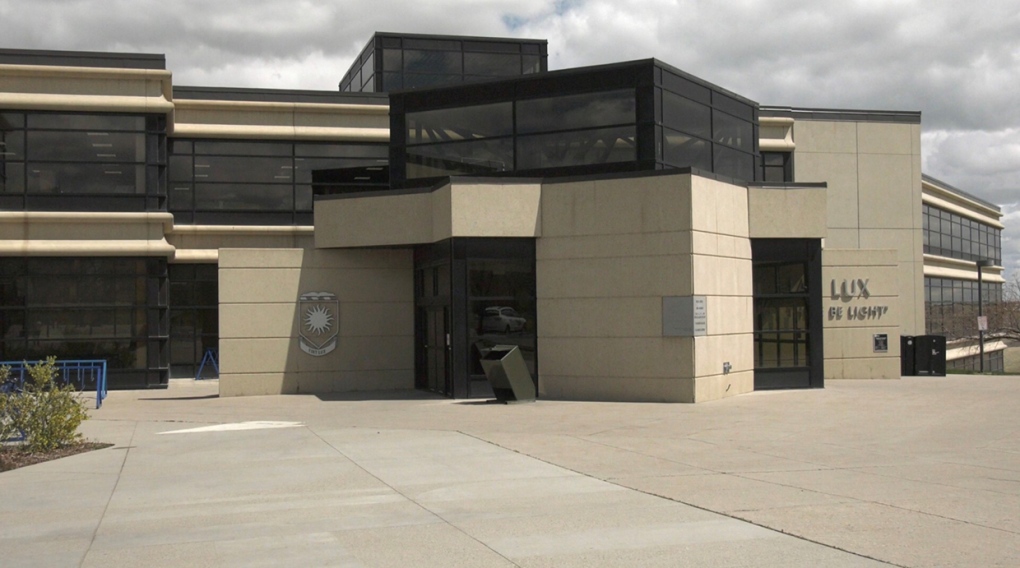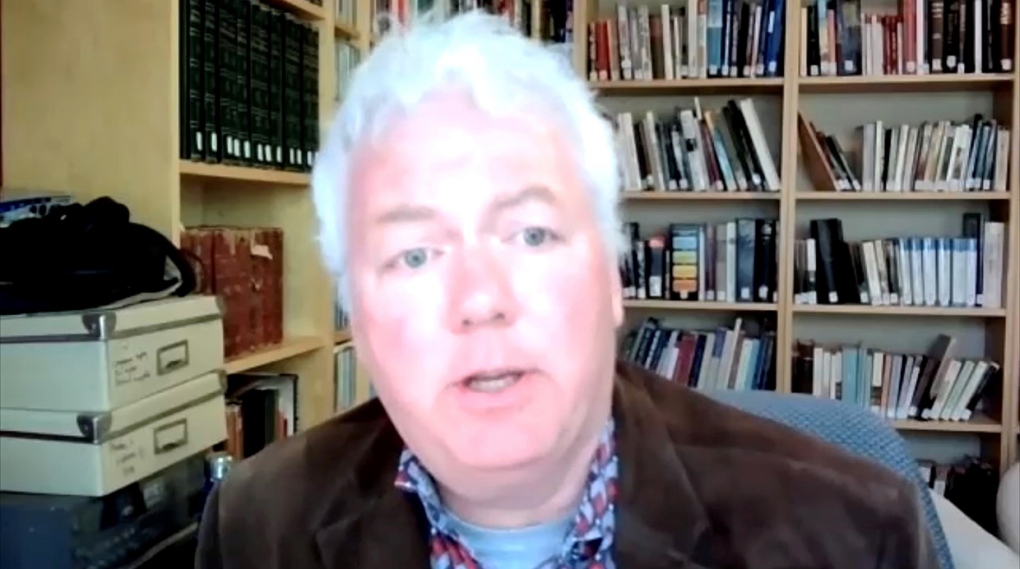'It's just about having a support system': University of Lethbridge receives open letter asking for flexibility in course delivery
 Students will begin returning to the University of Lethbridge campus on Sept.8 for the first day of classes.
Students will begin returning to the University of Lethbridge campus on Sept.8 for the first day of classes.
In one week's time, students will start classes on campus and in-person at the University of Lethbridge for the fall semester.
However, as the fourth wave of COVID-19 ramps up with the Delta variant spreading across the province, some at the school want to make sure back up plans are in place.
"If we've learned anything through the entire COVID experience, it's that we should learn from what's happened in the past," said Dan O'Donnell, the President of the U of L's Faculty Association (ULFA).
"If our plan is to be in-person, and then just suddenly pivot, that's not really a plan… That's a way of introducing chaos."
O'Donnell is one of a number of Lethbridge instructors concerned about the school's upcoming plan.
 Dan O'Donnell, University of Lethbridge Faculty Association president
Dan O'Donnell, University of Lethbridge Faculty Association president
They are having a full return to campus life for everyone which was developed and decided back in February.
Unfortunately, a lot has changed since then which is why the faculty association, Graduate Students' Association (GSA) and Public Service Alliance of Canada (PSAC) wrote an open letter addressed to the U of L President, Mike Mahon.
They're calling for more flexibility when it comes to the course delivery according to the GSA's president, Priyanka Dutt.
"It's to protect our students and to protect our staff and all the people that are working so hard to ensure that we have a great in-person experience," said Dutt.
"It's just about having a support system. A back-up for those people to ensure that they're not being faced with consequences."
The hope is to be able to move courses online, should cases increase, without affecting student learning in any way.
The letter includes recommendations put forward to President Mahon and the U of L:
- That academic penalties for absences and late assignments related to the COVID-19 health emergency be waived;
- That any substantial changes in the method of teaching (e.g. moving from in-person to online) do not require, as a condition of evaluation or grading, students to attend class at different times—with the exception of asynchronous material, to be available by the scheduled class time—add instructional hours, or require additional purchases;
- That any substantial changes in teaching methods be communicated to students with reasonable notice and consultation;
- That all substantial changes in the method of delivery be communicated by the instructor of record to their Department Chair, Dean, and the Accommodated Learning Centre as a matter of professional courtesy.
- That course outlines provide the https://www.ulethbridge.ca/campus-life/student-services link to assist students in accessing resources for their well-being and academic success; and
- An invitation for students to inform the instructor if any change in method of teaching creates difficulty of access.
These recommendations are very important to all groups involved in the writing of the letter, including the University of Lethbridge Graduate Association (ULGA).
"Having flexibility in sick leave and sick notes will just ensure that everybody's feeling comfortable staying home when they need to," said Jackson Ham, Chair for the ULGA.
Rachel Stark is the regional representative for the PSAC and believes strongly in making minimal changes to courses should they move online.
"Ensuring that there is no additional costs for the undergraduates to attend classes or to switch modalities on a dime is really important to ensure that we are providing the best level of education that we can."
UNIVERSITY RESPONDS
In a statement made to CTV News regarding the letter, the U of L had this to say:
"We are aware of the letter and respect the concerns raised as we enter the fall semester.
"As campus has begun to reopen, each step in our reopening plan has been guided by a commitment to the health and safety of our entire campus community, including faculty, staff, students and external community users."
"The measures we have taken, which include but are not limited to mandatory masking and a rapid testing requirement, exceed provincial health directives. As we finalize our protocols for the rapid testing plan and begin to welcome our students back to campus, our decisions will again be grounded in creating a campus environment that promotes the physical and mental well-being of our community."
"The COVID-19 situation is dynamic. As the semester advances, we will continue to monitor the protocols in place, with future decisions guided by the best interests of our entire campus community."
O'Donnell wanted to emphasize the fact that the ULFA, along with everyone involved, did not write the letter to fight with the University on this, but are merely looking to address their own issues to help lead a safe path forward for everyone.
"We absolutely realize that it's in all of our interests to provide the safest, best, most on campus experience possible," he told CTV News.
"The commitments that we make in this letter are to help the University and the administration deliver that in-person experience."
Students will begin returning to campus on Sept.8 for the first day of classes.
CTVNews.ca Top Stories

LIVE NOW Budget 2024 prioritizes housing while taxing highest earners, deficit projected at $39.8B
In an effort to level the playing field for young people, in the 2024 federal budget, the government is targeting Canada's highest earners with new taxes in order to help offset billions in new spending to enhance the country's housing supply and social supports.
BUDGET 2024 Feds cutting 5,000 public service jobs, looking to turn underused buildings into housing
Five thousand public service jobs will be cut over the next four years, while underused federal office buildings, Canada Post properties and the National Defence Medical Centre in Ottawa could be turned into new housing units, as the federal government looks to find billions of dollars in savings and boost the country's housing portfolio.
Some of the winners and losers in the 2024 federal budget
With a variety of fiscal and policy measures announced in the federal budget, winners include small businesses and fintech companies while losers include the tobacco industry and Canadian pension funds.
From housing initiatives to a disability benefit, how the federal budget impacts you
From plans to boost new housing stock, encourage small businesses, and increase taxes on Canada’s top-earners, CTVNews.ca has sifted through the 416-page budget to find out what will make the biggest difference to your pocketbook.
Police to announce arrests in Toronto Pearson airport gold heist
Police say that arrests have been made in connection with a $20-million gold heist at Toronto Pearson International Airport one year ago.
Teen hockey players arrested for sexual assault following hazing incident: Manitoba RCMP
Three teenagers were arrested in connection with a pair of alleged hazing incidents on a Manitoba hockey team, police say.
'I Google': Why phonebooks are becoming obsolete
Phonebooks have been in circulation since the 19th century. These days, in this high-tech digital world, if someone needs a phone number, 'I Google,' said Bridgewater, N.S. resident Wayne Desouza.
Liberals aim to hit the brakes on car theft with new criminal offences
The Liberals are proposing new charges for the use of violence while stealing a vehicle and for links to organized crime, as well as laundering money for the benefit of a criminal organization.
BUDGET 2024 Ottawa police get $50 million to boost security around Parliamentary Precinct
The Ottawa Police Service will receive $50 million in new federal funding over the next five years to "enhance security" around the Parliamentary Precinct.
































